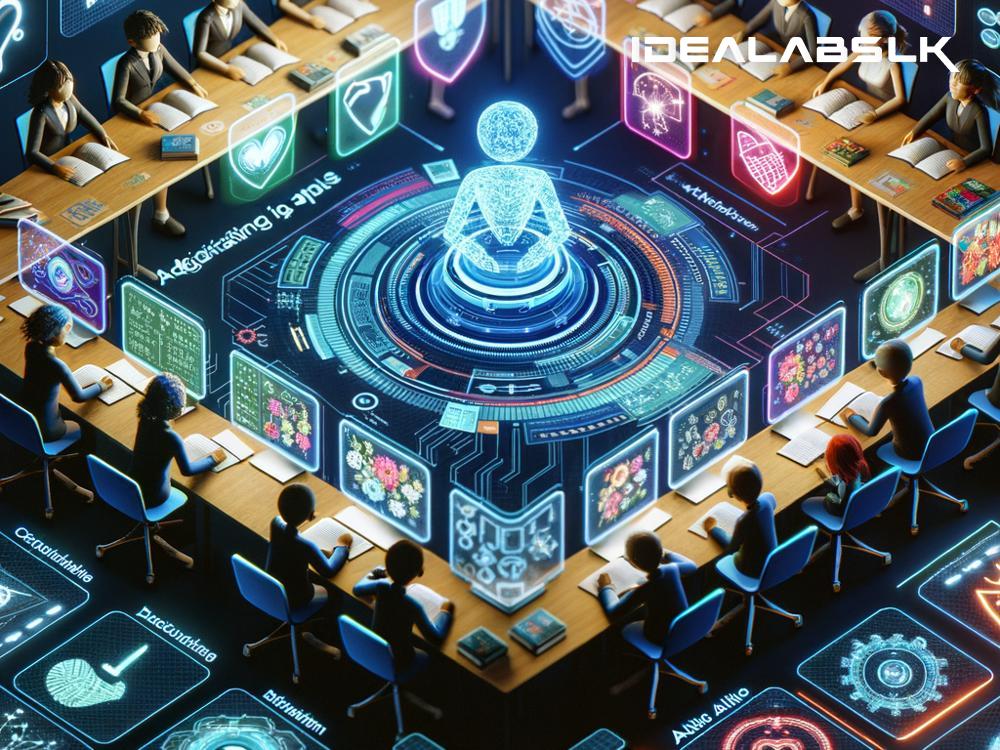The Future Is Here: How AI Will Revolutionize In-Game Tutorials and Learning by 2025
Have you ever been stuck in a video game, frustrated and circling in loops, not knowing what to do next? We've all been there. But what if I told you that by 2025, those days could be ancient history, thanks to artificial intelligence (AI)? That's right – the future of gaming is not just about better graphics or more immersive experiences. It's about making games smarter, more intuitive, and tailored to your individual learning style. Let's dive into how AI is set to revolutionize in-game tutorials and adaptive learning systems in the next few years.
Smarter In-Game Tutorials Through AI
Imagine playing a game where the tutorial doesn't feel like a tutorial. It's not a separate, boring segment you rush through or skip entirely. Instead, learning the game is woven into your gameplay, so seamlessly that you might not even notice you're being guided. This is the promise AI brings to in-game tutorials.
AI can analyze how you play in real-time, noting the moves you make, the paths you choose, and the challenges you face. By understanding your unique play style and where you're struggling, AI can offer personalized hints and guidance. This ensures that you're not just learning to play the game but mastering it in a way that feels natural to you.
Adaptive Learning Systems: A Personal Trainer for Every Gamer
Beyond tutorials, AI's potential extends to creating an entire learning ecosystem within games. Think of it as having a personal trainer who knows exactly what you need to improve and how you learn best. This adaptive learning system continuously adjusts the game's difficulty, challenges, and even the storyline, ensuring you're always engaged but never overwhelmed.
For beginners, this might mean simpler puzzles and fewer enemies as they get the hang of things. For veterans, the AI ramps up the difficulty, introducing more complex scenarios that require strategic thinking and quick reflexes. The beauty of these AI-driven systems is their ability to cater to a wide range of players, from casual gamers to hardcore enthusiasts, ensuring everyone has a rewarding experience.
Redefining the Learning Curve
One significant advantage of smarter in-game tutorials and adaptive learning systems is the potential to redefine the 'learning curve' in games. Traditionally, games have a fixed progression path – everyone starts at level one and works their way up, facing the same challenges in the same order. However, not all players learn at the same pace or in the same way.
With AI, the game evolves with you. If you're breezing through puzzles, the AI might skip ahead or introduce more challenging ones to keep you engaged. Conversely, if you're struggling, the AI can dial back the difficulty or offer additional resources to help you understand better. This personalized approach ensures that the game's learning curve matches your unique learning curve, making for a more enjoyable and fulfilling experience.
The Impact on Game Design and Development
The integration of AI into in-game tutorials and learning systems will also have a profound impact on how games are designed and developed. Game designers will need to think more dynamically, creating games that can adapt and respond to each player's actions and progress. This requires a shift from linear storytelling and level design to more flexible and responsive game mechanics.
Moreover, as AI becomes more sophisticated, developers will have access to vast amounts of data on how players interact with their games. This insight can inform future game design, leading to even more engaging and personalized gaming experiences.
Looking Ahead: The Possibilities Are Endless
By 2025, AI-driven in-game tutorials and adaptive learning systems could become the new standard in gaming, transforming how we learn, play, and master games. But the possibilities don't stop there. Imagine AI-powered virtual coaches for esports, helping players fine-tune their strategies and skills. Or AI-driven educational games that adapt to a child's learning pace, making learning more fun and effective.
The integration of AI into gaming opens up a world of possibilities, not just for entertainment, but for education, training, and beyond. As we look to the future, one thing is clear: the intersection of AI and gaming will continue to redefine our gaming experiences, making them more personalized, engaging, and rewarding than ever before.

